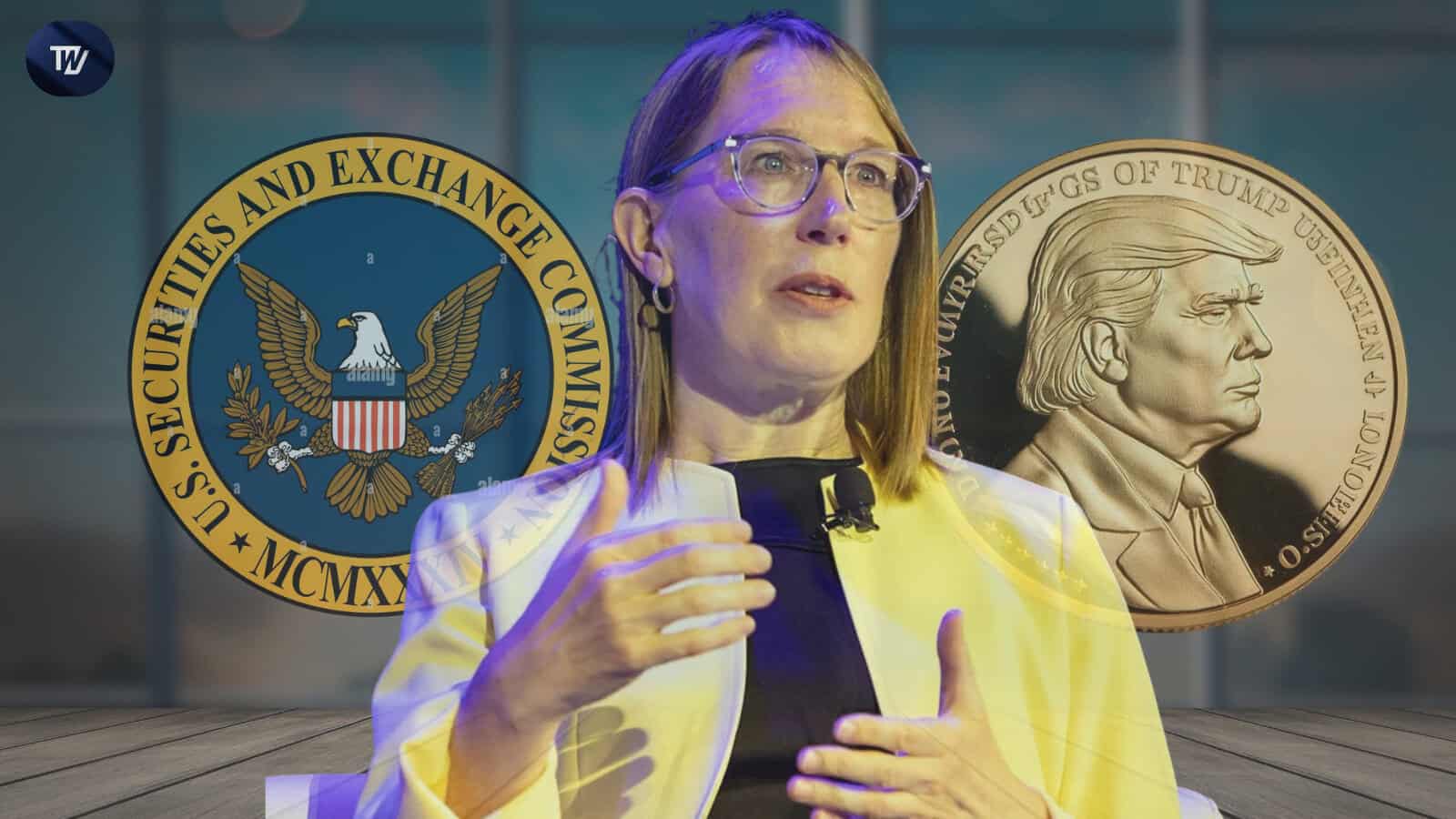Key Takeaways
- The SEC no longer regulates meme coins like $TRUMP, leaving investors without formal protection.
- Democratic lawmakers are raising concerns over Trump’s crypto involvement and potential conflicts of interest.
- Washington is signaling a regulatory shift toward a more crypto-friendly stance post-Biden era.
A drastic departure from past regulatory practices, the Securities and Exchange Commission (SEC) has now officially backed off from regulating meme-based tokens like the controversial $TRUMP token.
The move, as explained by Commissioner Hester Peirce, is a reflection of the agency’s refusal to include the majority of meme coins as securities and bring them under its domain.
The $TRUMP token, linked to entities associated with the Trump family, premiered in January but quickly attracted huge interest. Though it briefly touched a market valuation of $15 billion, the token has declined steeply since then, drawing criticism and scrutiny from several political spectrums.
With 80% of the supply being said to be in the possession of Trump-associated organizations, there are now questions being raised regarding transparency and influence.
SEC’s Retreat Sparks Political Debate Concerns
The timing of the SEC’s retreat from meme coin regulation has added fuel to political debate. Critics argue that the rollback aligns too closely with former President Donald Trump’s increasing footprint in the digital asset space.
While the White House insists Trump’s holdings are insulated from conflicts of interest via a family trust, members of Congress, particularly from the Democratic side, remain unconvinced. Concerns have been raised that such unregulated financial instruments could be used for indirect political fundraising or foreign influence.
Senator Richard Blumenthal and others emphasize the murky ethical boundaries, especially with the Trump family’s predominant ownership of the coin and its surrounding ecosystem. On the other hand, Trump’s frequent endorsements have caused fluctuations in the market, which is making the regulatory terrain more complex.
Crypto Industry Sees Revival as Enforcement Eases
The SEC’s recent decision to end its lawsuit against Binance, one of its most high-profile crypto cases, marks a broader policy recalibration. Critics of past regulatory tactics argue that an enforcement-first approach by the agency only created confusion and scarred innovation.
At last, with a concentration on developing clearer frameworks before imposing penalties, industry participants are cautiously optimistic. This recalibration forms part of a wider initiative to restore confidence among legacy financial institutions and technological innovators.
The reversal of prior crypto-hostile directives, such as the controversial Staff Accounting Bulletin 121, signals an intent to bring more established custodians into the space, possibly restoring legitimacy and institutional confidence in digital assets.
As regulatory boundaries shift, the future of crypto governance in the U.S. appears increasingly shaped by political affiliations and market dynamics rather than established precedent.
Related Reading | RippleX Launches XRPL Startups into Spotlight at Dubai FinTech 2025













